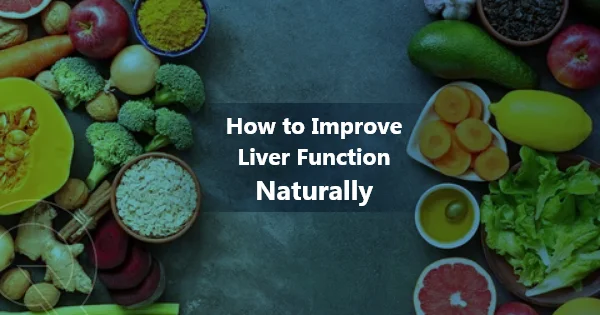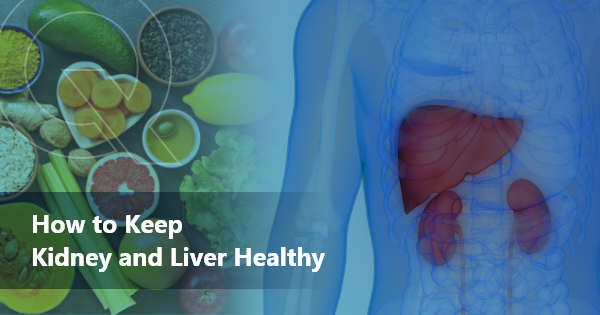Your liver is a vital organ that plays a crucial role in detoxifying your body, processing nutrients, and metabolizing drugs. To keep it functioning at its best, it’s important to adopt a healthy lifestyle and incorporate natural practices that support liver health. In this blog, we’ll explore ten natural ways to improve liver function.
Contents
Tips to Improve Liver Function
Maintaining optimal liver function is crucial for overall health. The liver is responsible for detoxifying the body, processing nutrients, and supporting digestion, making it essential to keep it in top shape. Here are some tips to improve liver functioning:
1. Eat a Balanced Diet:
A well-balanced diet is essential for good liver health. Focus on consuming a variety of fruits, vegetables, whole grains, lean proteins, and healthy fats. Limit processed foods and excessive sugar intake to reduce the burden on your liver.
2. Stay Hydrated:
Proper hydration is key to flushing toxins out of your body. Drink plenty of water throughout the day to support your liver’s detoxification processes.
3. Exercise Regularly:
Regular physical activity helps improve overall health, including liver function. Exercise can reduce the risk of fatty liver disease and promote better blood circulation.
4. Control Your Weight:
Maintaining a healthy weight is essential for liver health. Excess body fat, especially around the abdomen, can lead to fatty liver disease, which can harm liver function.
5. Limit Alcohol Consumption:
Excessive alcohol can damage the liver. If you drink, do so in moderation. For those with liver issues, it’s often best to abstain completely.
6. Avoid Overuse of Medications:
Many medications can stress the liver. Consult with your healthcare provider to ensure the safe use of medications, and try to limit unnecessary over-the-counter drug use.
7. Incorporate Liver-Friendly Herbs:
Certain herbs like milk thistle and turmeric are known for their liver-protective properties. You can incorporate them into your diet or take them as supplements after consulting a healthcare professional.
8. Reduce Toxin Exposure:
Minimize your exposure to environmental toxins and chemicals. Use natural cleaning products, and be mindful of what you put on your skin and in your home.
9. Get Plenty of Sleep:
A good night’s sleep is crucial for overall health and liver function. Aim for 7-9 hours of quality sleep each night.
10. Manage Stress:
Chronic stress can negatively impact liver health. Practice stress-reduction techniques like yoga, meditation, or deep breathing exercises to support your liver and overall well-being.
Role of Liver
The liver is often described as the body’s ultimate multitasker, as it performs a wide array of functions that are essential for maintaining overall health. Let’s dive deeper into its roles and understand why it’s crucial to keep this vital organ in optimal condition.
Detoxification:
One of the liver’s primary responsibilities is detoxification. It filters out harmful substances from the blood, including toxins, drugs, and alcohol. Through a series of intricate biochemical processes, the liver transforms these harmful substances into less toxic or water-soluble compounds, which are then eliminated from the body. This detoxification process is essential for preventing a buildup of harmful substances in your body.
Nutrient Processing:
The liver also plays a key role in processing and storing nutrients. It converts nutrients from the food we consume into forms that our body can use for energy, growth, and repair. For instance, the liver stores glucose in the form of glycogen and releases it when your body needs an energy boost. It also helps regulate blood sugar levels by converting excess glucose into fat for storage.
Metabolizing Drugs:
When you take medications, the liver is responsible for metabolizing them to make them safe and effective. This process involves breaking down drugs into forms that can be easily eliminated from the body. If the liver is not functioning optimally, it can affect how medications work in your body and may lead to unintended side effects.
Conclusion:
Your liver is a remarkable organ with the ability to regenerate and repair itself. By adopting these natural practices and making healthier lifestyle choices, you can help your liver function optimally. Remember that it’s always a good idea to consult with a healthcare professional before making significant changes to your diet or lifestyle, especially if you have existing liver concerns. Your liver will thank you for the care and attention you provide.
Frequently asked Questions
Q1:What foods are good for liver repair?
A1:Numerous foods contain distinct compounds or antioxidants known to promote liver health. Some instances include grapefruit, blueberries, cranberries, fatty fish, olive oil, and cruciferous vegetables such as broccoli and Brussels sprouts.
Q2:Which fruit is best for the liver?
A2:Berries, particularly dark varieties like blueberries, raspberries, and cranberries, are rich in polyphenol antioxidants that could potentially safeguard the liver from harm. A 2013 rat study even indicated that supplementation with blueberry juice might enhance the liver’s antioxidant capacity.
Q3:Is papaya good for the liver?
A3:The liver plays a pivotal role in filtering our body. Consuming papaya can contribute to liver protection against diseases. Individuals aiming to shed weight can incorporate papaya into their breakfast and as a snack between lunch and dinner.





